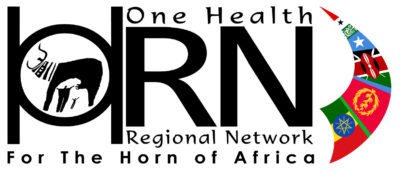 Human and livestock health sectors in pastoral areas of Ethiopia have received marginal attention in the past. Previous approaches to health service provisions attempted to address interventions on human and livestock separately and disregarded the environment; both depend on this for their survival. However, the launching of the One Health National Strategy in Ethiopia will contribute to preventing, detecting and rapidly responding to zoonotic diseases and related health challenges in pastoral areas where people have strong consumption, aesthetic, and economic ties with their livestock.
Human and livestock health sectors in pastoral areas of Ethiopia have received marginal attention in the past. Previous approaches to health service provisions attempted to address interventions on human and livestock separately and disregarded the environment; both depend on this for their survival. However, the launching of the One Health National Strategy in Ethiopia will contribute to preventing, detecting and rapidly responding to zoonotic diseases and related health challenges in pastoral areas where people have strong consumption, aesthetic, and economic ties with their livestock.
Maintaining a disease-free ecology in pastoral areas is still a challenge due to a number of factors including movement in and out of quarantined livestock through rustling, unregulated cross-border trade, and other causes. With little veterinary and human health services, this remains a challenge for resettled households who – in particular – live in settlements in remote locations. This research hypothesises that resettlement has potential influence on reduced livestock and human mobility, habitat fragmentation, and controls over herd splitting. This in turn will result in more frequent contacts through encampment of livestock in villages increasing the possibility of zoonotic disease prevalence in resettlements.
The overall objective of this social science research study is to examine the nexus between environment, human and livestock interfaces, and the subsequent health challenges from zoonotic diseases in resettlements. The specific objectives are:
1. To map out the perceived occurrence of zoonotic diseases
2. To examine perceptions about the causative factors of zoonotic occurrences, along with the local treatment knowledge
3. To identify the health service value chain and pastoralist risk sharing mechanisms for zoonotic diseases, along with the effect of non-regulated livestock trade risk in the prevalence of zoonotic disease infection.
4. To investigate how zoonotic diseases affects social bond and support networks systems
5. To examine into experience of girls/women in the treatment of livestock for zoonotic diseases
PLAN OF ACTIVITIES
-Provide both face-to-face and virtual training to data collectors on data collection procedures and COVID 19 standard precautionary measures
-Field data collection in research sites in the SNNPR and Somali regional states followed by analysis
-Publishing findings on journals and hold a workshop in Addis Ababa
